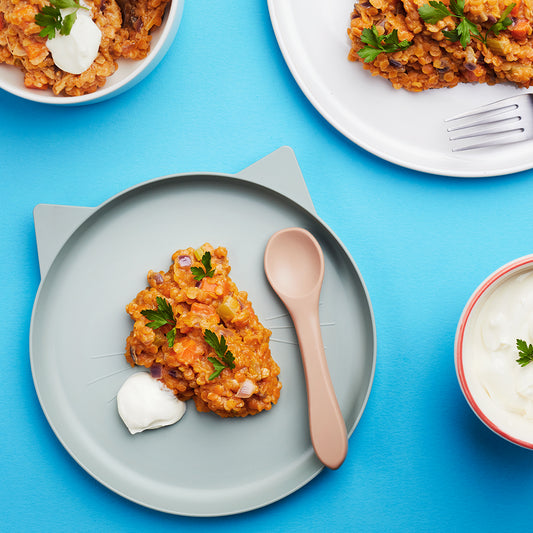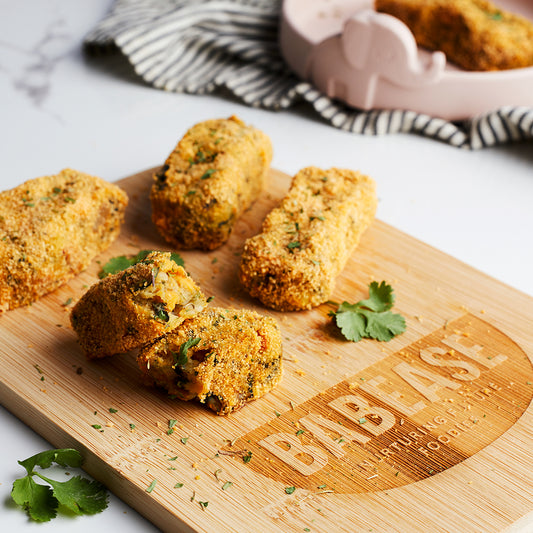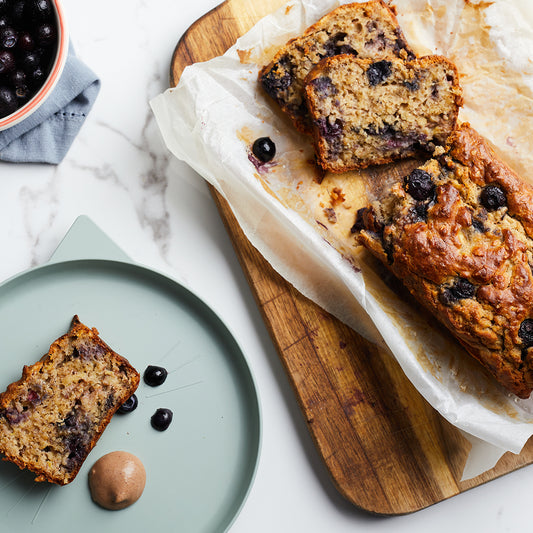'HEALING FOOD' - FOODS TO EAT TO AID RECOVERY AFTER GIVING BIRTH.
Having a baby is such an exciting time for a new mother. There is so much focus on your newborn baby, but remember to take care of yourself too! Good nutrition can help ensure that you have enough energy to look after your new baby, as well as aiding in the healing process.
It is important that you have an overall balanced nutritional intake from all of the food groups. Include plenty of vegetables and fruits, dairy products, wholegrain carbohydrates and high protein foods such as meat, fish, eggs, lentils/beans, nuts, seeds and nut butters.
Labour uses up a lot of energy (especially if you’ve had a prolonged birth) and this needs to be replaced. You may find that small frequent meals and snacks are easier to digest than large meals. Try to enlist the help of others to prepare meals for you, such as your partner, friends or relatives.
In order to obtain sufficient energy, try to base all your meals on starchy carbohydrates such as pasta, rice, couscous, potatoes and breads, including as many wholegrain varieties as possible as they provide fibre and additional nutrients such as B vitamins. Also include some healthy fats such as avocado, nuts, seeds, nut butters, olive oil and rapeseed oil.
Protein (from fish, eggs, pulses, beans, nuts and meat) is very important in the healing process to supply essential amino acids for repair and healing of tissues. Make sure that you include a high protein food with all your meals and snacks.
It is also very important to stay well hydrated, especially if you are breastfeeding. Try to get into the habit of having a glass of water every time you feed your baby.
Vitamin C and zinc are particularly important micronutrients for wound healing, if a mum has had any tearing or if she is recovering from a C-section. Vitamin C is involved in collagen formation and crosslinking, as well as having important antioxidant properties to help the immune system. Vitamin C also helps with the absorption of vegetarian sources of iron. Zinc plays a key role in collagen formation, tissue growth and wound healing.
Good food sources of vitamin C include:
- Oranges and other citrus fruits
- Strawberries
- Kiwi fruit
- Blackcurrants
- Broccoli
- Peppers (particularly red and green peppers)
- Potatoes
- Brussel Sprouts
Good food sources of zinc include:
- Meat
- Shellfish
- Milk
- Cheese
- Bread (wholegrain)
- Baked beans
- Fortified cereal products
- Wheat germ
Other vitamins that are important in healing and recovery include vitamin B-complex (essential for carbohydrates to be used as energy by the body), vitamin A (stimulates collagen synthesis and improves immune function) and vitamin E (acts as an antioxidant)
Good food sources of these vitamins:
B vitamins occur widely in many different types of foods. Good sources include wholegrain breads, cereals and brown rice, eggs, milk, fruits, vegetables (particularly green leafy vegetables), meats and fish.
Good sources of fat-soluble vitamin A include eggs, cheese, oily fish, fortified spreads, full fat milk and yoghurts. Liver products such as liver pate are also an excellent source of vitamin A, but take care not to have more than once per week, as too much vitamin A is not good for your health.
Another way of getting vitamin A into your diet is by including foods rich in beta-carotene, which can be converted to vitamin A in the body. Foods rich in beta-carotene include yellow fruit such as mango, papaya and apricots, as well as yellow, red and green (leafy) vegetables, such as spinach, carrots, sweet potatoes and red peppers.
Vitamin E is also a fat-soluble vitamin and good sources include plant oils – such as soya, corn and olive oil, nuts and seeds and wheat germ – found in cereals and cereal products.
In addition to zinc, other minerals that are important in healing and recovery include copper (necessary for proper functioning of the immune system and involved in collagen cross-linking) and iron (required for oxygen transport, normal immune function and collagen synthesis).
Good sources of copper include nuts, shellfish and offal.
Iron in foods is found in 2 forms – haem iron and non-haem iron. Haem iron is very well absorbed and excellent food sources are meat and meat products, particularly darker meats such as beef, lamb, duck and liver. Oily fish and egg yolk are also good sources of iron.
Vegetarian / non-haem sources of iron include baked beans, chickpeas, lentils, tofu, soya beans, raisins, dried apricots, broccoli, broad beans, blackcurrants, spring greens, spinach and fortified breakfast cereals.
To improve the absorption of non-haem iron, include foods rich in vitamin C at the same time.
Please note: Take care not to take supplements with large / excessive amounts of these micronutrients, as mega doses can be potentially harmful to you. If in doubt, speak with your Midwife or another health care professional.
INGREDIENTS
- Having a baby is such an exciting time for a new mother. There is so much focus on your newborn baby, but remember to take care of yourself too! Good nutrition can help ensure that you have enough energy to look after your new baby, as well as aiding in the healing process.
METHOD
Having a baby is such an exciting time for a new mother. There is so much focus on your newborn baby, but remember to take care of yourself too! Good nutrition can help ensure that you have enough energy to look after your new baby, as well as aiding in the healing process.
MORE RECIPES
Are you looking for something tasty and nutritious to share with your budding foodie? Discover our baby weaning recipes, perfect for every occasion! Here at Babease, we know that you want your little one to experience the wide world of food! We’ve collected some of our favourite recipes for babies and created this handy resource to provide you with some new and exciting ideas.
EXPLORE ALL RECIPESGET 20% OFF YOUR FIRST ORDER!
Join the Baby Club for FREE weaning help and advice.


